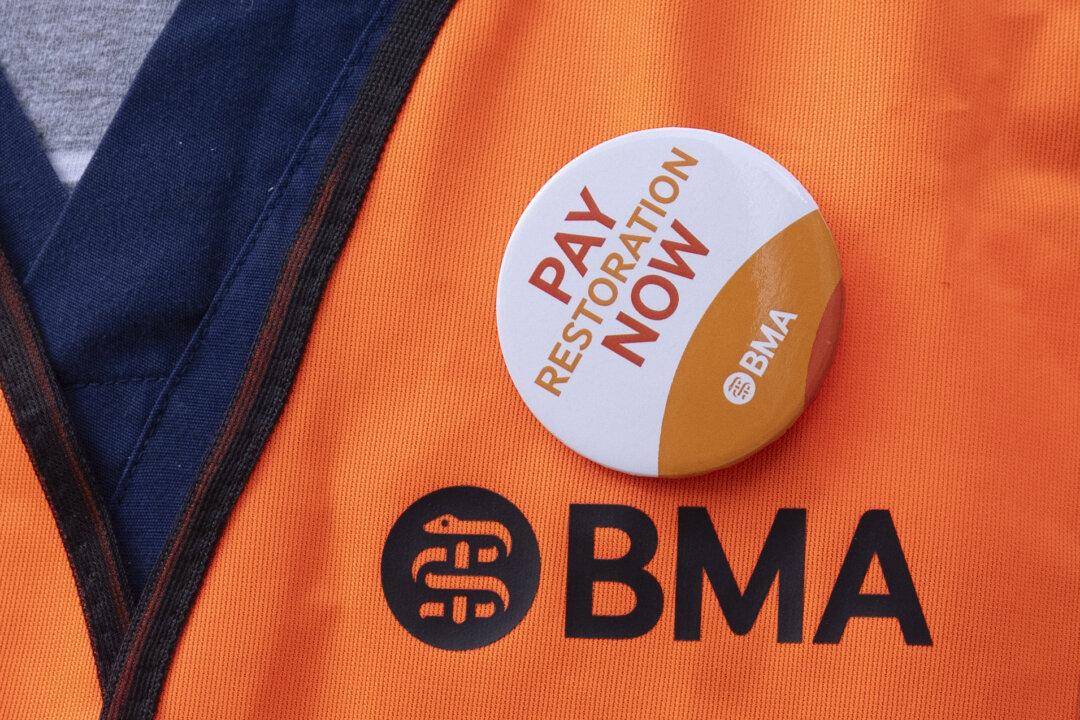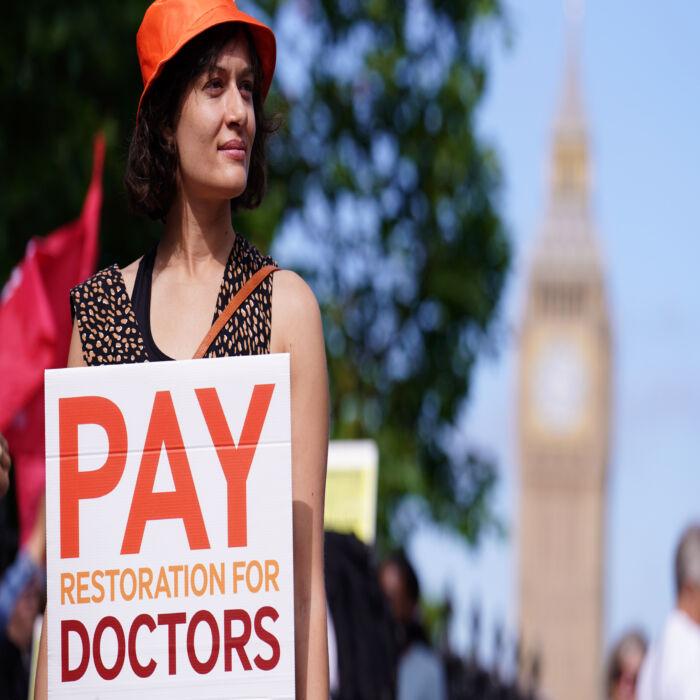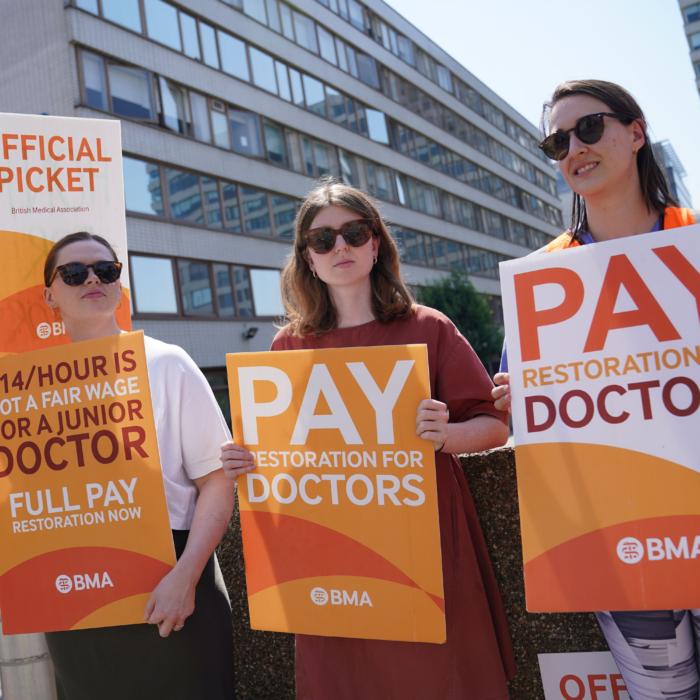The impact of the latest junior doctors strikes will “be felt for some time to come,” likely having resulted in thousands of cancelled operations and appointments, an NHS membership body has said.
“Our members will be very relieved that these latest junior doctor walkouts have finished, but their impact will be felt for some time to come. Though it will take a few days for the dust to settle and firm figures to emerge we know that tens of thousands of operations and appointments are likely to have been cancelled,” said NHS Confederation Chief Executive Matthew Taylor.
The five-day strike comes ahead of the general election on Thursday and has been criticised over its timing.
The NHS Confederation has acknowledged the pay dispute issues at the heart of the strikes, but questioned that the walkout in the “midst of a general election campaign could have moved the dial.”
Ongoing Dispute
Junior doctors have been in a dispute with the government over pay restoration, asking for a 35 percent rise to bring pay in line with inflation increases.In May, the government and the British Medical Association (BMA) entered mediated talks to try and resolve the dispute. But they failed to reach an agreement before parliamentary business was concluded in the run-up to the general election.
Health Secretary Victoria Atkins called the decision to stage a strike in the middle of an election campaign “cynical” and said that the government “cannot and should not” accept the demand of a 35 percent pay rise.
Ms. Atkins said she was “serious about a resolution” and this was reflected in the deals she had made with the NHS consultants and specialty doctor.
Both the Conservatives and Labour have pledged to resume talks with the BMA’s Junior Doctors Committee if they are voted to power. Labour’s shadow health secretary Wes Streeting said that he will call the BMA on July 5.
“We hope that the next government can re-start negotiations and bring this dispute to an end so the NHS can focus on improving performance and cutting waiting lists rather than filling rota gaps and rescheduling appointments,” said Mr. Taylor.
He said that patients are “bearing the brunt” of the ongoing pay dispute, often waiting in pain or discomfort for care.
‘Matter of Urgency’
He reiterated that the NHS 999 emergency service and the 111 service for other health concerns can still be used by patients.NHS Providers, a membership organisation representing NHS acute, ambulance, community and mental health services, has warned that more strikes will take place unless the next government resolves the pay dispute.
“This strike may have ended but more could be on the horizon unless the next government resolves the NHS industrial disputes as a matter of urgency. Damaging and demoralising strikes must not become the status quo for the NHS and patients,” said Saffron Cordery, deputy chief executive of NHS Providers.
Ms. Cordery said that trust leaders will be looking to all involved parties to reset the relationship and prevent further disruptive walkouts.
“The alternative doesn’t bear thinking about,” she said.
In an announcement last week, the BMA said that from September junior doctors are to be called resident doctors. The change in the title comes amid criticism that it is misleading to patients and demeaning to doctors.







